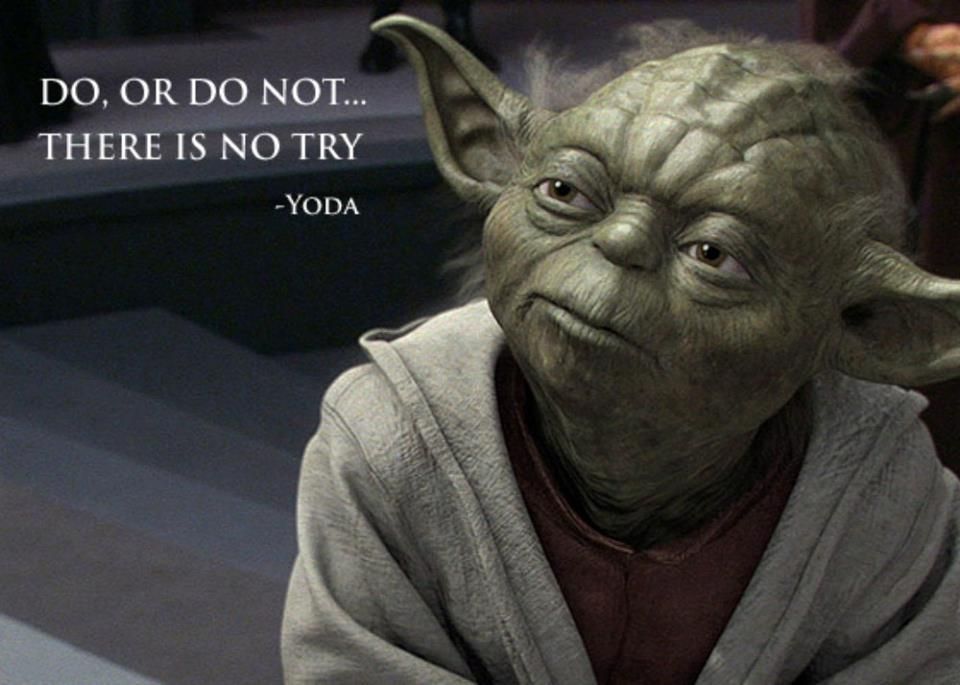How This Unique Approach For Treating Hard-To-Solve Conditions Is Different From Anything Else You’ve Tried
“Do…or do not. There is no try.”
This iconic quote is from Yoda, in Star Wars Episode V: The Empire Strikes Back. *
And it often applies to many of my patients and families.
By the time I see patients, they’ve typically been evaluated not only by their primary care clinician, but also by at least one specialist.
They have frequently undergone many diagnostic tests, and have already tried many different approaches to solve their problem, such as:
- Prescription medication
- Over the counter medication
- Homeopathy
- Herbs and supplements
- Acupuncture
- Chiropractic
So, they typically feel sad, and frustrated, and worried, and maybe even a bit discouraged.
Does this sound familiar?
When people feel this way, it says some wonderful things about them. It shows that they are smart. And that they are being realistic, based on their past experiences.
And when people are discouraged, it protects them from disappointment.
If you have high expectations, and then you or your child doesn’t improve, then you’ll probably feel disappointed.
But if you have low expectations, and there is no improvement, then you can’t be disappointed. So, this is the “safer” approach when trying something new.
And I feel sad to hear about all of this. On the other hand, I feel hopeful.
Helping Patients Move From “Try” To “Do”
When someone reaches out for help, that’s evidence that they’re ready for help… and want to see results.
I see patients with problems for which traditional medicine either doesn’t work or has side effects. So, it provides a wonderful opportunity for patients to learn how to help themselves.
We often see clinicians who tell us, “Try this medicine.” Or, “Let’s try this approach.” I believe this gives the implicit message that this tactic may not work.
And, when none of the methods have been successful, they may say, “Well, you can see Dr. Lazarus and try hypnosis.”
This is not what I would call a wildly enthusiastic recommendation!
But it makes sense. Most clinicians are not trained in medical hypnosis, so how could they possibly give a wholehearted endorsement for it? And this lack of commitment and confidence can be contagious for patients and families.
After my free, over-the-phone consultation with patients/parents, and if I believe it’s a good fit, I ask the person if they feel comfortable with my approach.
So, when patients say, “Yes. I’d like to try it,” they are exactly where they should be, at that moment.
And when I hear this, I tell them that the word “try” is not allowed in my office, and I mention the above quote from Yoda.
The bottom line is…
It’s All About Attitude
And how can someone have a positive attitude if they’ve lived with their problem for so long, and have tried everything else?
For therapy to work, I believe you need 2 main things:
- Positive expectations
- Motivation
Most patients are motivated to change. But how could they possibly have positive expectations after struggling for so long with their problem with no improvement?
That is when I reassure them by saying, “I’ve seen and helped a lot of patients with this problem…some older, some younger, some boys, some girls, some men, some women, some more severe and some less severe.”
This can be quite comforting and uplifting for them.
After the initial screening phone call, the most common comment I hear from patients or parents is, “You gave us hope.”
How I Strive to Give My Patients Hope… And Results
I incorporate medical hypnosis, cognitive behavioral therapy strategies, and powerful motivational tools.
Before I see children and adolescents, I first meet with their parent(s) for around 2 and ½ to 3 hours.
At this intake evaluation, not only do I learn about the specific problem they want my help with, but I also hear all about school, sports, hobbies, friends, family, and anything else the parents think I should know.
Then I outline my approach in detail, in order for the parents to understand every step of the process: what I do, how I do it, why I do it, and when I do it, because we are all on “Team Jane” or “Team John,” as I like to call us.
Then I send an introductory letter or email to the patient, telling them that I’m looking forward to working with them to help them gain control over their problem.
And I believe in long visits.
As you know, the typical therapist meets for 45 or 50 minutes once a week for weeks, months, or years.
That is not my approach, and it is not the type of patient problem that I treat.
I find the problem with such short visits is that it seems like half the time we’re doing catch up, and half the time we’re doing crisis intervention: “My brother said this. My teacher did that. My friend said this.”
Not that those things are unimportant, but they take away from the task at hand.
My initial patient visits are typically 2 and ½ to 3 hours. There’s no question that we will accomplish a lot more in one visit of 150 minutes than we could possibly hope to accomplish in 3, 4, or even 5 visits of 50 minutes each.
The above also holds true when I meet with adult patients.
Typically, my patients have significant improvement after only 1 to 4 visits.
Now, I can’t guarantee this. Of course, with biobehavioral work, one never knows how quickly patients will get better. But when people “follow the program,” there is a pretty quick turnaround time.
I hope this brief introduction has been helpful to you. If you’d like to speak with me directly, you may click here and send me an email regarding a free consultation.
Thank you.
I look forward to speaking with you soon!
Jeff Lazarus, MD
Jeffrey E. Lazarus, MD, FAAP is a board-certified pediatrician who combines more than 25 years of general pediatrics experience with the use of medical hypnosis and visualization techniques, cognitive behavioral therapy strategies, and powerful motivational tools.
*The idea for this blog was originally inspired by my mentor, Daniel Kohen, MD, FAAP, ABMH, and co-author of the new, upcoming Hypnosis with Children-5th Edition by Daniel P. Kohen, MD, and Karen Olness, MD.




